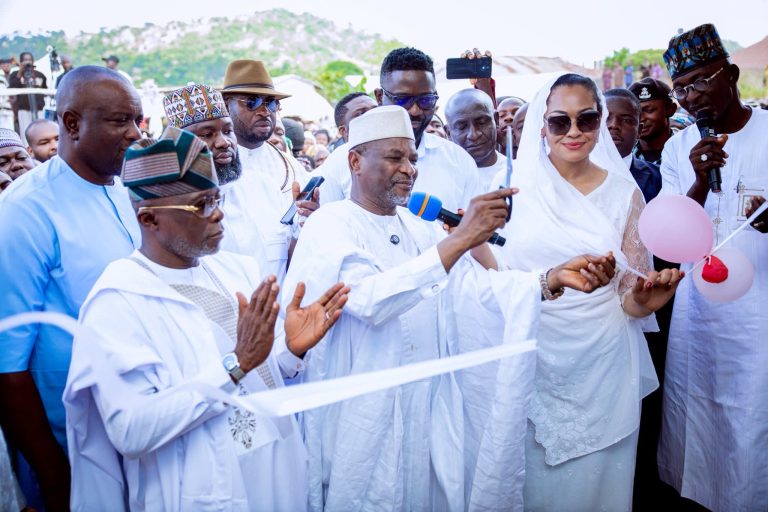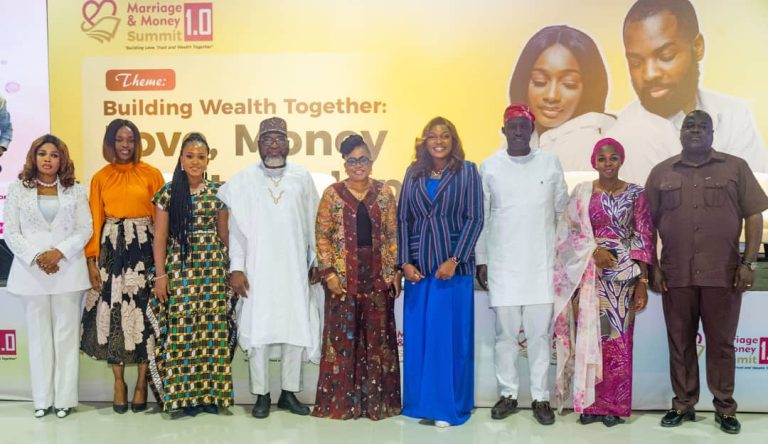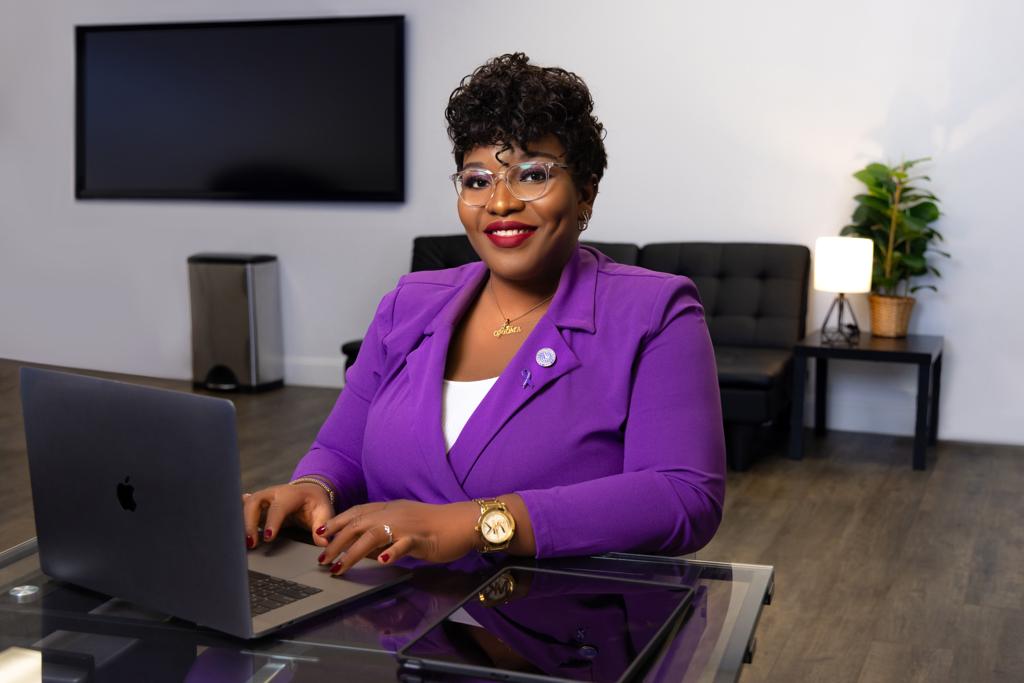
A nonprofit organization; Ozioma Okoro Caring Hands Foundation (OOCHF) was established in 2021, by Ms Ozioma Okoro, (President/Founder), principally with the aim of inspiring and empowering girls, children and women in Nigeria, Africa, and around the world. In this interview with PEOPLE AND POWER MAGAZINE IKECHI ENWEREJI, she talks about the Foundation’s accomplishments and many projects underway. Excerpts:
Who is Ozioma Okoro?
Ozioma Okoro is a Nigerian, from Umuihim in Isiala Mbano Local Government Area of Imo State. I was born on March 24, 1991; I am a DOMESTIC VIOLENCE SURVIVOR, a social justice activist, a women’s and children’s rights advocate, and the President/Founder of OZIOMA OKORO CARING HANDS FOUNDATION. I have a diploma in business management from Abia State Polytechnic, and also a Bachelor’s Degree in Political Science from Enugu State University of Science and Technology (ESUT). And I’m currently living in the United States and pursuing a career in Nursing.
How did you venture into establishing the Ozioma Okoro Caring Hands Foundation?
I was formerly married, but the marriage was quite short because it was full of domestic violence. So, I had to take a walk, and during my transition from leaving my abusive marriage to finding myself again, I went back to my parents. I was a little bit confused about what to do and how to locate women’s support groups, but I’m fortunate enough to have my parents and family who were highly supportive of me during that challenging moment. I tried to get help from NGOs and to speak out, but because I was not so much informed I didn’t know how to go about it. I was very young and naive then, I didn’t really know what to do.
During that process, I promised myself that when I found my voice again, I would establish Ozioma Okoro Caring Hands Foundation, to help women who are navigating through domestic violence, or going through an uncomfortable situation in their marriages or relationships to transition very well into a better safer place.
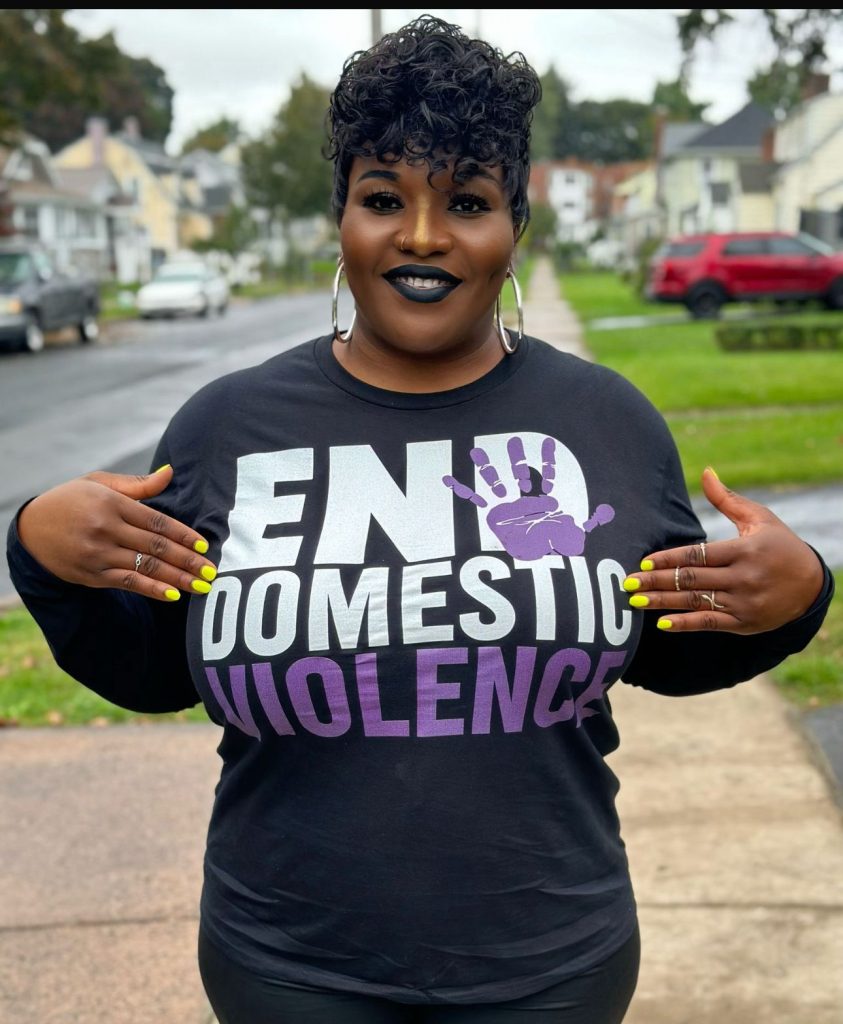
How many women have you helped so far?
In our foundation we believe so much in respecting the confidentiality of people’s privacy, hence I cannot give you figures and or names of people our Foundation has helped. But we have helped a lot of women mostly in Nigeria – Abia State, Lagos, Port Harcourt, Imo State, and many others. However, it is interesting to note that these women do not really want their stories out there, except for a few of them who do not care about what society is going to say about them, the stereotypes and marginalization that come with speaking out, while some of them are not just ready to tell their stories to the world, which is understandable because of the society we live in today. I can confidently tell you that we have helped a lot of women in Nigeria and even in the Diaspora too.
Domestic violence has taken a deep toll on our families and not many steps, as it were, are being taken to curb the menace. So, what level of awareness is your foundation carrying out to convince the victims that they can be helped out of their predicament when they speak out?
We have been able to create a lot of awareness both on social media and at the grassroots level. Last time, we were in Abia to create awareness; we tried to speak to people. Our team members also tried to talk with market women to enlighten them on the dangers of domestic violence, how to speak out in the face of abuse, and how to get help. We have really created a lot of awareness, not just in the Eastern part of Nigeria but also, in the Northern part of Nigeria. As you can see, we have a lot of photos on our social media platforms where we went for awareness campaigns; we went to talk to students and women about domestic violence. Unfortunately, some of these people, especially people at the grassroots, get shocked when we talk about domestic violence. Some of them asked, what is domestic violence because it is a new thing to them, but by the time we begin to explain it better, they will begin to tell you stories of how It is happening in their various homes but they don’t know that it has a name and this is what you can do; how you can speak out and get help, if you are facing it.
So, we have created a lot of awareness online as well as moving from one physical location to another.
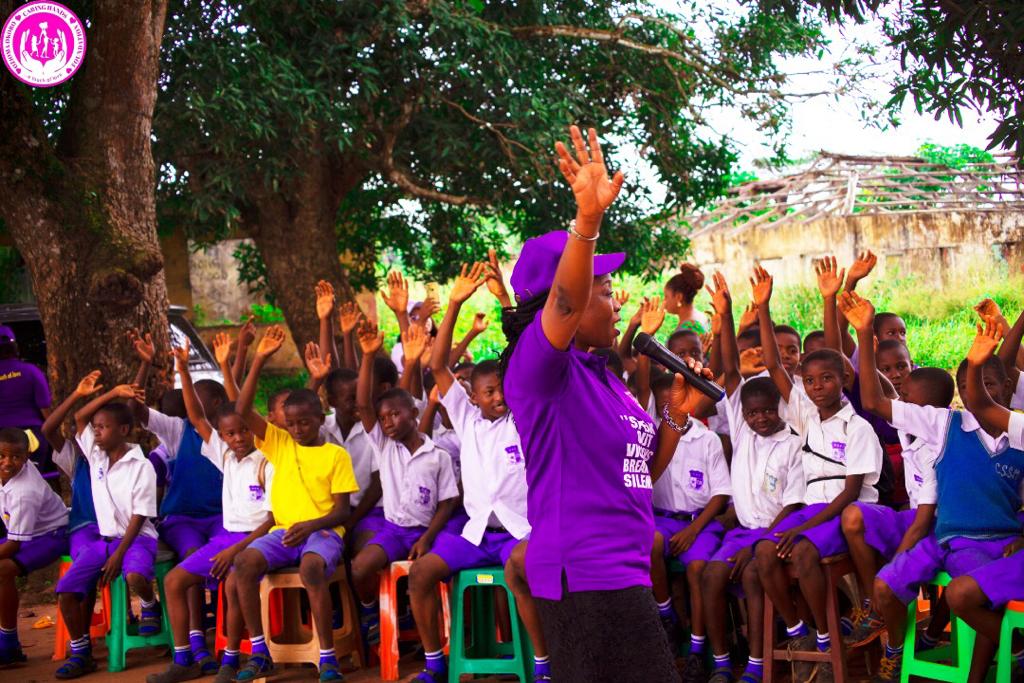
In Imo State, you said you have established a centre that can accommodate up to 5,000 orphans. Is this centre fully established or a projection of what is about to happen in the nearest future?
We already have land for the project in Owerri, Imo State. We are working on building and establishing it. The project will be a massive project. That is why we had to put it out there that our foundation needs massive support from well-meaning Nigerians and foreigners as well. With the vision I have, I am looking at a very big foundation where children, and orphans will find succour if they need help. Right now, we have a site for that.
Was the Foundation birthed out of passion or experiential circumstances?
It was founded out of passion and also out of circumstances, I was inspired by how society marginalizes women and girls, victims and survivors of sexual and gender-based violence. So, I decided to create a platform where these victims and survivors will feel free to voice out without being judged.
Also, in the course of doing my job as a social worker; managing a foundation is more like a social work. I began to find out that some sexually assaulted minors who were assaulted by family members, sometimes find it hard to get a shelter, to stay and process the situation, while getting the necessary counseling they need. That’s why I am trying to provide a safe place where a young girl can be able to navigate, process, and heal from such trauma, a home away from home.
For instance, if a victim has a family member who defiled or violated her and no one can accommodate the victim in order not to have anybody judge them. We can also give them accommodation where they can navigate, process, and heal from it while we continue to seek justice for these victims. Not only that, but some young girls too that have teenage pregnancy, and we are also looking at having them get shelter under us. You know how Nigeria is, no parents want their daughters to get pregnant under them out of wedlock. So, if something like that happens, we are looking at having these children accommodated with the consent of their parents or guardians.
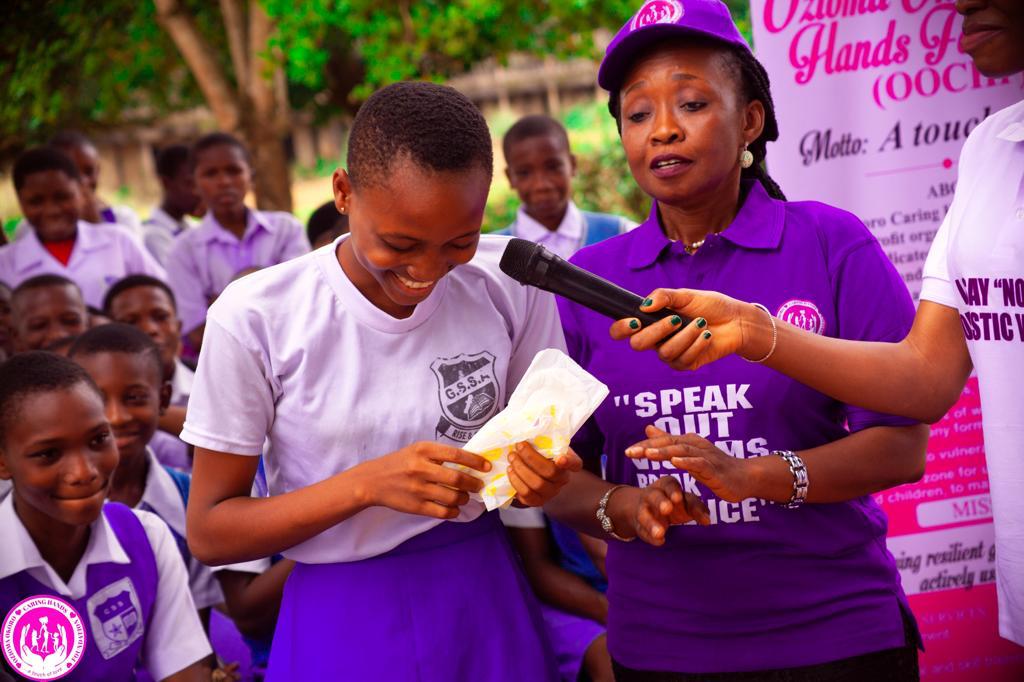
You were able to easily overcome your challenges because you had an understanding of very supportive family members; so, what is that thing that breaks your heart when you remember the plight of a typical Nigerian woman who is helpless?
When I see someone who is helpless, I just remember myself because when I was experiencing such a situation, I was helpless and like you said, I am so happy to have family members who are a strong support system to me then and now. I don’t want or wish any Nigerian woman irrespective of race, religion, and tribe to go through what I went through. Even though I have my family solidly with me, I had my moment of torture and emotional meltdown. I want a situation where women will not experience what I went through.
So, when I see a woman going through domestic violence or any form of gender-based violence, abuse, or discrimination I try to help out. Most times when you talk about domestic violence people ought to think that it is only physical abuse; domestic violence could also be emotional abuse, financial abuse, technological abuse, and so on, I really don’t wish anybody to experience such. This is why when I see women going through such plight, I try to put myself in their shoes and step in.
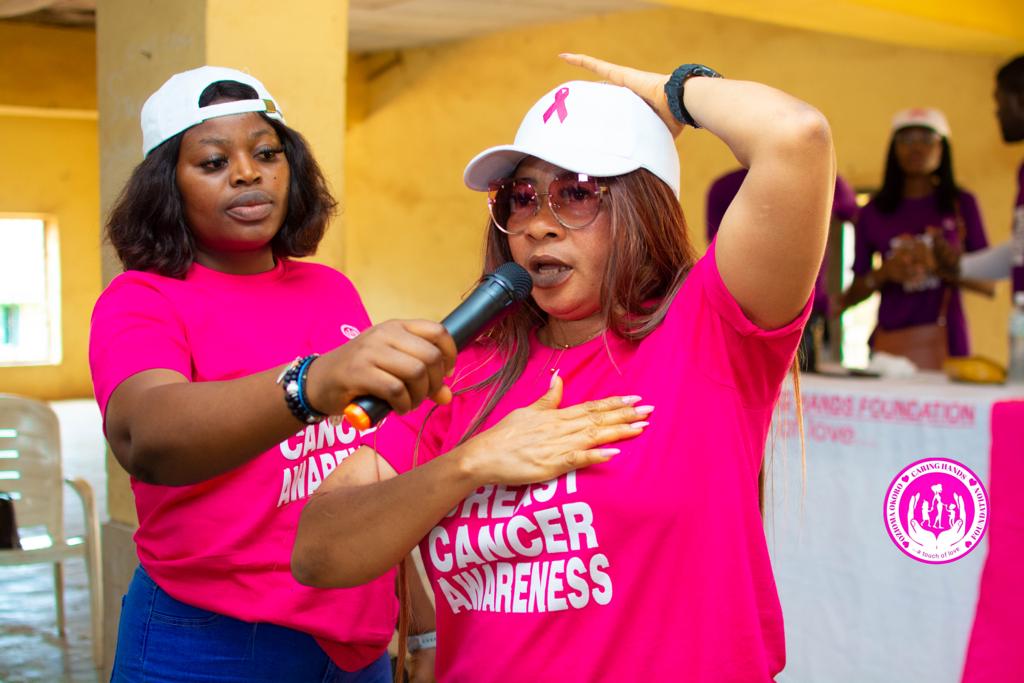
What are the challenges you have encountered or are facing while handling these situations?
One of the biggest challenges we have encountered as a foundation is, sometimes these women after helping them to get to their feet, go back to their abusers, and when abuse sets in again, they tend to call our foundation again for help. Seeing some victims go back to their abusers because of societal pressure and judgment, or lack of self-empowerment is quite discouraging and I can understand that because sometimes, we are stocked with the abusers. You know a typical African woman loves marriage more than her own life. So, most of them don’t want to take a walk, they don’t want to walk out of an abusive marriage because of societal judgment. It is quite discouraging.
Another big challenge is funds, we need funds and grants to continue to work and impact lives the way we do. If we are well-funded, we can achieve much more than we are doing at the moment.
Mostly too, it could be due to traditional factors; it could also be religious beliefs and an attempt to retain family values. In most families, they believe that no matter the challenges, you cannot leave your marriage – it is your final destination; once married, forever married.
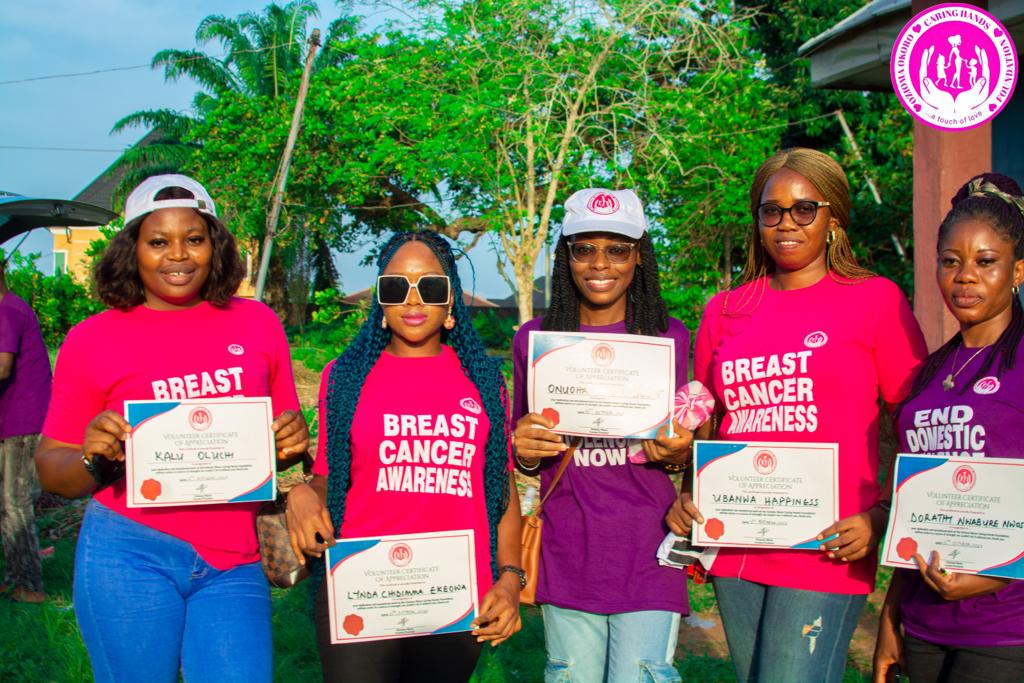
Can I ask, what you mean by traditional?
In most family traditions, they believe that once you are married you are married forever; you cannot come out of it. In some cases, women have been subjected to some kind of ritual processes and even as far as taking an oath to remain in the marriage – for better or worse scenarios. So, the person involved is subjected and forced to remain in the marriage where she is constantly violated and abused.
Also, due to ignorance and not being properly informed, the victims don’t know they can break out of such bondage. That is why, when you see people who voice out their torture, they are more valued; and the moment they speak out, they get help.
What is your advice to the young people specifically women; concerning what they can do to succeed in this economically challenging terrain?
The first thing I tell my women or my girls is empowerment because it is said that empowerment brings something to the table but education is the table itself. So, I am advising every woman and female child to get an education, which is very important. With education and self-empowerment, there are levels of things you will accommodate in your space, and you will become self-aware and empowered because, in the course of managing Ozioma Okoro Caring Hands Foundation, I found out that one of the biggest challenges we also have about victims not walking out of the abusers is because they don’t have something doing. Most of them are housewives and most of them are not working; some of them didn’t go to school. So, it is quite challenging, I like encouraging women to get an education and get something doing a job, as well as a business or a skill. I mean, let us empower ourselves and be useful to ourselves first so that in a situation like domestic violence, we can be able to help ourselves get the necessary things we need financially to navigate through the situation.
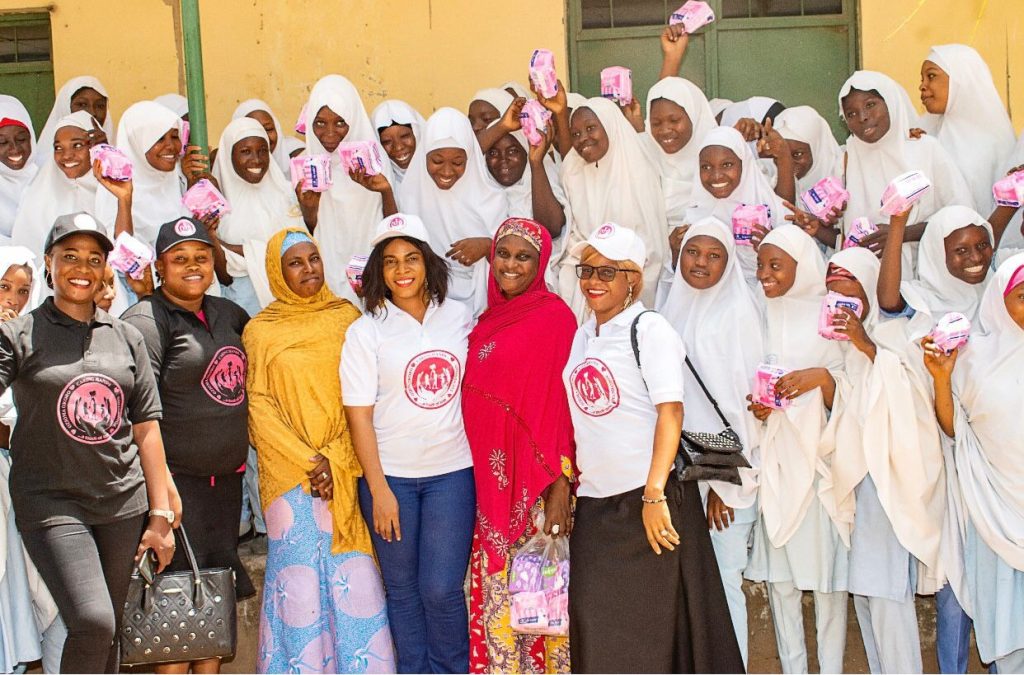
Funding an organization like yours, is unarguably not easy; so what is your source of financing?
I have a job and because of the passion that I have, I invest heavily in the organization. I have family members and friends who support me because anyone who knows me personally knows how passionately I love working and investing in OZIOMA OKORO CARING HANDS FOUNDATION. I also have a few people who support me around the world.
Taking Nigeria as a case study, do you think the government is doing enough to support vulnerable women in society to come out of their predicament?
Right now, I am so proud of Lagos State because of the strict law on domestic violence I have referred some women to the Lagos State Department of Domestic Violence when they speak out and we have a lot of domestic violence cases that we are handling. So, I tried to refer them and they got help.
I really don’t know much about other states but we are hoping to see Imo State do more on issues like domestic violence; because most of the victims I get are from Imo State. I want to thank the Imo State Women’s Affairs Commission because they have been so helpful in this kind of situation. I have been able to refer some women to them and they have also played major roles to help out. Imo State has helped solve our domestic violence cases. I want them to do more.
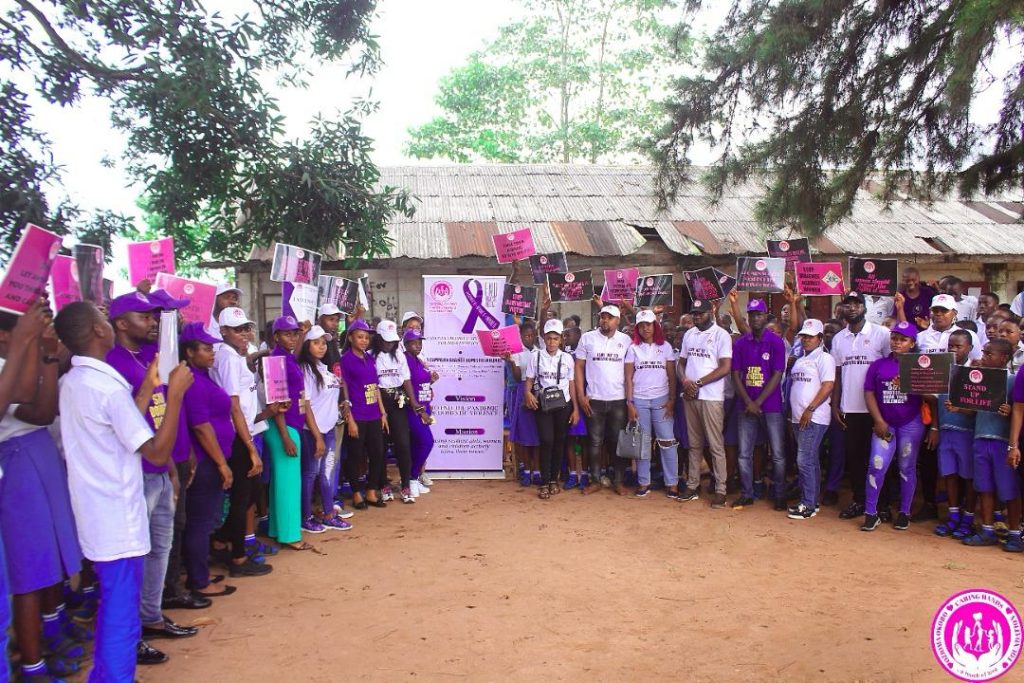
What more can you advocate that the government should do to help more victims?
Building a shelter is very necessary because when a woman is trying to break through from domestic violence, the next thing she will ask is where am I going to stay? I have had a lot of women who asked me “Ozioma, where am I going to stay?” And because we don’t have any shelter right now, we try to make calls to see if any member of our foundation will accommodate any of them. I had to put a call across to my friends and even family members to see if we could accommodate these women. So, it is quite challenging and I am pleading with the government to see if they can build shelters for women.
Let us assume the abused women in question, refer to those with children. If they come out from the abused marriage, are they going to come with their children or just only them?
You know, Nigeria’s culture tilts to the paternal side, so an abused woman often tries to leave the child or children with the husband while she tries to get herself together and possibly be on her feet again. So, most of them don’t want to leave their children and some of them also want to go with their children. So, when I am talking about shelter, it doesn’t really matter if these women are walking out with their children or maybe they are leaving their children behind. As far as they are getting shelter, enough counselling, and therapy, their situation becomes a bit better. I also want the government to work towards getting certified Therapists and Counsellors who can help these women to navigate through the situation while in the shelter – emotionally. It is very important that they do this, because when someone walks out of an abusive marriage or relationship and stays in a shelter without any form of counselling, it is just like you are giving someone an accommodation. The help of therapists and counsellors will go a long way to help the person come out of the situation.
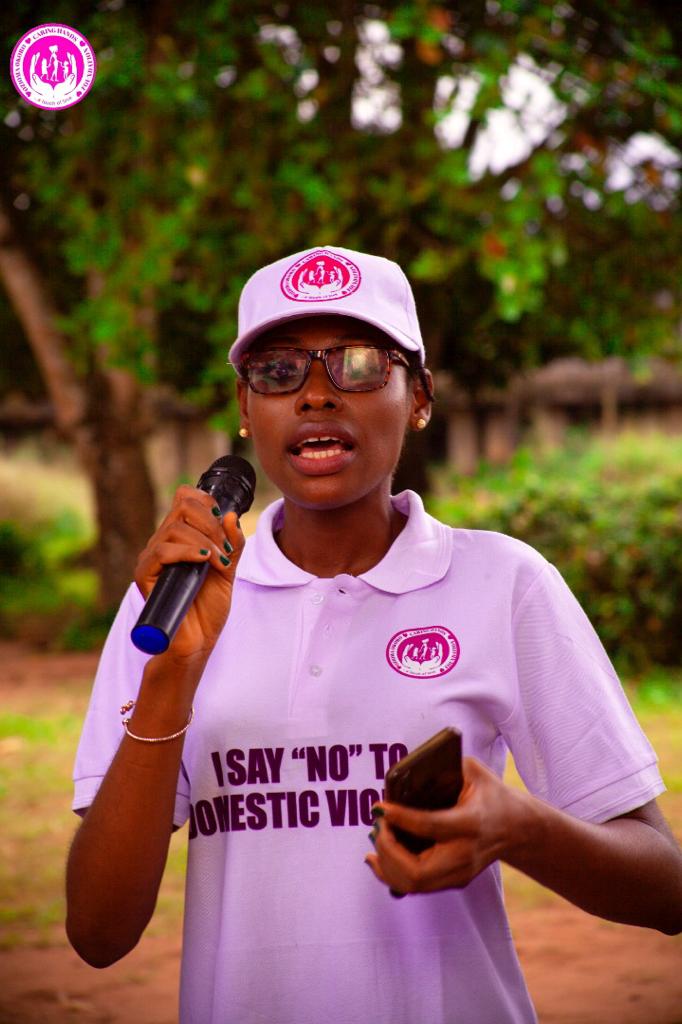
Where do you see Ozioma Okoro Caring Hand Foundation in the next five to 10 years?
I envision OZIOMA OKORO CARING HANDS FOUNDATION being a global organization, touching lives positively, lending support, and helping the abused and the vulnerable in our community.
In the next five to ten years, I see us establishing an orphanage for children and a shelter for abused women and girls, a vocational center for people to acquire entrepreneurial skills, and a health center where services will be provided for free.
In the future, do you have any political ambition?
Well, I have had some people say to me that I would do so well in politics because of how gracefully I lead my team. Honestly, I have not thought about going into politics, but YES!!! If I have the opportunity for a political appointment, I will grab it. We need more women to thrive in politics.
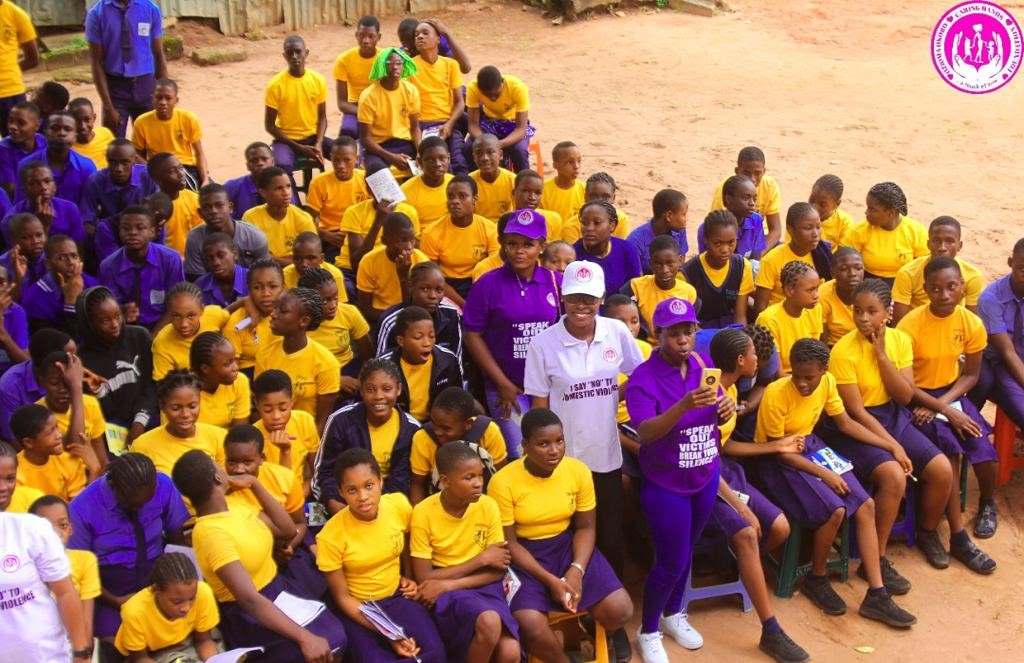
You are currently living in the USA and your Foundation is going on in Nigeria; how do you coordinate your team members? Are they committed to working for the Foundation or have you experienced any kind of betrayal from them?
I can’t really say that I have experienced any betrayal from any of my team members; my Personal Assistant, Miss Ihuoma Onuoha is one of the best people life has ever brought towards my path and I am so proud of her. She knows how to manage everything in the foundation financially, morally, and otherwise. She has done so great in running the foundation, and for the rest of the team members too, I am so proud of them. They have been very proactive, respectful, and very passionate about what we do. I can’t say that I have seen any of them who are not committed and passionate about what we do. None of them is there for their gains, they are all working so hard for the good and growth of the foundation. So, I’m blessed to have them.
What advice do you have for the victimized rural women and also women in the urban cities who cannot access help?
The only thing I can say to them is that help is on the way; there is this stereotype of not knowing that they can speak out and get help or maybe they don’t know how to go about it, we are going to come for them and that is why we are trying to take the Foundation to the grassroots, which is an area Ozioma Okoro Caring Hands Foundation focuses on. The rural areas, marketplaces, and talking to children in schools about domestic violence. It doesn’t matter if they are struggling with speaking out or other things, we are going to come to their doorsteps, to educate and enlighten them on the dangers of domestic violence.
Do you envisage anything that can discourage you from going on with this project – Ozioma Okoro Caring Hands Foundation?
Right now, I don’t see myself getting discouraged because if I had wanted to be discouraged it would have been when I first started the foundation. But right now, we are moving forward and nothing can stop me anymore.

